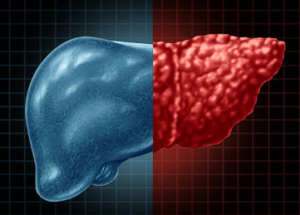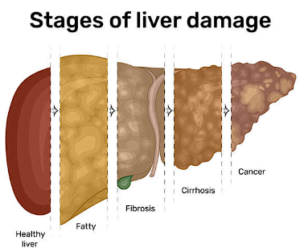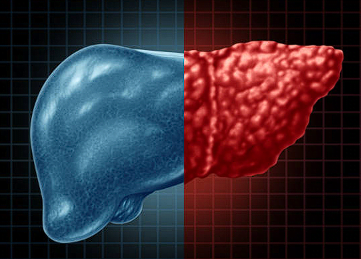

Introduction [Fatty Liver]
In recent years, the prevalence of fatty liver disease has been increasing, becoming an important public health concern worldwide. But what exactly is fatty liver disease and how does it impact our health? In this blog post, we will explore the complexities of this condition, its causes, symptoms and available treatments.
What is fatty liver disease?
Fatty liver disease (hepatic steatosis), refers to the buildup of fat in liver cells. This excess fat can affect with the normal functions of the liver, leading to various health problems over time.
There are two types of fatty liver disease:
Non-Alcoholic Fatty Liver Disease (NAFLD):
This type of fatty liver disease occurs in individuals who do not drink excessive amounts of alcohol. NAFLD is often allied with obesity, insulin resistance, and metabolic disorder.
Alcoholic fatty liver disease (AFLD):
AFLD develops in individuals who consume excessive amounts of alcohol. Long-term alcohol consumption can cause fat to accumulate in the liver, causing inflammation and potentially progressing to more serious liver conditions such as alcoholic hepatitis or cirrhosis.
Causes of Fatty Liver Disease:
While the exact cause of fatty liver disease may vary depending on the type, several common risk factors contribute to its development, including:
Obesity:
Excess body weight, particularly abdominal obesity, increases the likelihood of developing NAFLD.
Insulin Resistance:
Insulin resistance, often linked with type 2 diabetes, can lead to fat buildup in the liver.
High cholesterol or triglycerides:
Elevated levels of cholesterol and triglycerides in the blood can contribute to the development of fatty liver disease.
Excessive alcohol consumption:
Chronic alcohol consumption is a major cause of AFLD.
Sedentary lifestyle:
Lack of physical activity can increase the risk of developing fatty liver disease.
Medicine: https://amzn.to/44sZxfK
Certain medications:
Certain medications, including corticosteroids, tamoxifen, and methotrexate, may contribute to fat accumulation in the liver.
Symptoms of fatty liver disease:
In the early stages, fatty liver disease may not cause any noticeable symptoms. However, as the condition progresses, individuals may experience:
fatigue, weakness, stomach discomfort or painStomach swelling, jaundice (yellowing of the skin and eyes)loss of appetite, involuntary weight lossIt is important to note that symptoms may vary depending on the severity of the disease and other underlying health conditions.
Diagnosis and treatment:
Diagnosis of fatty liver disease typically involves a combination of medical history evaluation, physical examination, and clinical tests, such as blood tests, imaging studies (ultrasound, CT scan, MRI), and sometimes liver biopsy.
Treatment of fatty liver disease primarily focuses on modification of the underlying risk factors and lifestyle. These may include:
Weight loss: Achieving and maintaining a healthy weight through diet and exercise can help reduce fat accumulation in the liver.
Healthy diet: Eating a balanced diet low in saturated fats, sugars and refined carbohydrates can help support liver health.
Avoiding Alcohol:
For individuals with AFLD, it is important to eliminate or reduce alcohol consumption to prevent liver damage.
Managing underlying conditions:
Treating conditions like diabetes, high cholesterol and high blood pressure can help improve liver health. In some cases, medications or surgical intervention may be recommended to manage specific complications or underlying conditions associated with fatty liver disease.
Conclusion:
Fatty liver disease is a prevalent condition that can have a significant impact on one’s health if left untreated. By understanding the causes, symptoms, and available treatment options, individuals can take proactive steps to protect their liver health and reduce the risk of complications associated with this condition. If you suspect that you may have fatty liver disease or are concerned about your liver health, consult a health care professional for proper evaluation and guidance.
Medicine : https://amzn.to/3QtG48L
